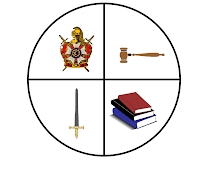One common thread that has permeated your feedback on my teaching has been to incorporate and work on differentiation. Well, there certainly is no one way to do it; however, I have learned of another tool that could sure help me design lessons for GATES students and those who have IEP's and need a more structured and guided approach to a lesson and/or concept to master.
A webquest is an online guided lesson that walks students through a series of tasks, which culminates in some sort of project. Teachers can create a webquest using a tutorial and website links from: http://www.teachersfirst.com/summer/webquest/quest-a.shtml
Also, teachers can access pre-designed webquests, through a variety of content through the same link as above.
Generally, the webquest follows the this format:
- A Mission: which describes the lesson activity and the culminating product for this lesson.
- Resources: a list of all of the related websites that students will use for researching or information obtainment that will allow them to access the necessary resources to finish their product.
- Evaluation: a rubric by which student products will be graded
- Message for Teachers: the hints, notes and need to knows for teachers conducting the webquest.
- Alternative Lesson Plans: alternate lessons that are indirectly related to the webquest that can serve as extensions for students or as alternatives.
Webquests usually involve more than one media type, such as: internet links, PowerPoint presentations, printouts, video and/or audio files and can range in depth of knowledge, content, and required time to complete the lesson.
Perhaps most intriguing about a webquest is that students are generally enthusiastic about participating in this type of interactive lesson. As educators, it is essential that students are motivated learners and working online and independently, on a topic of interest that they can have choice in the product makes their learning an engaging experience and curriculum rich. This helps support differentiation based on interests. Further, students learn how well the internet can support and contain great research materials. By providing students with varied readiness types of research needed, directly in the webquest, students can work at their own pace and at their own readiness level, which helps in the goal of differentiation as well.
I can definitely see the application of this unique lesson-type suiting GATES students who pass out of portions of units or entire units. I can also see how this guided inquiry could help students with IEP's participate in something more adequately suited for their readiness level.
Here is a sample, middle-school science webquest: i. http://www.powayusd.com/projects/MT&R/conflictyellowstonewolf.htm

No comments:
Post a Comment